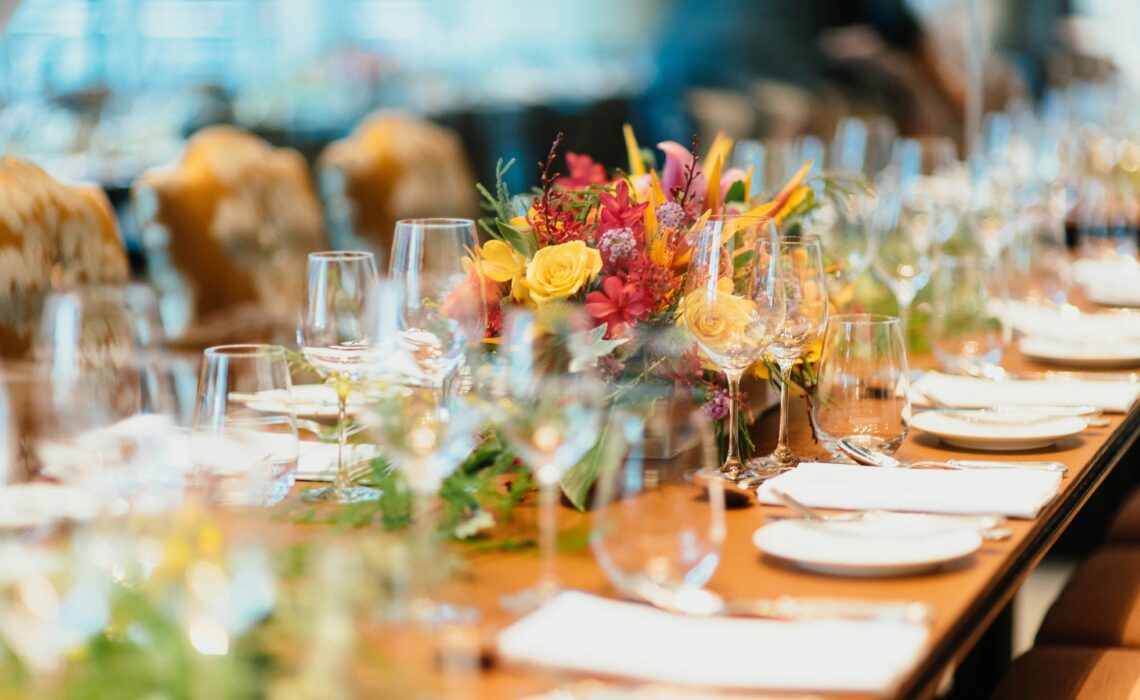
Looking to lower the environmental impact of your wedding day? Outside of paper stationary and decorations, food is one of the leading sources of wedding-related waste.
Research shows that 10% of wedding food is tossed out. This includes everything from those tasty appetizers during cocktail hour to dinner, dessert, and late-night snacks. Here are a few ways to reduce food waste at your wedding and enjoy an environmentally-friendly celebration.
Skip the Buffet
Most wedding caterers offer two meal options: plated or a buffet. A plated meal allows guests to select their food preferences from a predetermined list chosen by the couple. Guests make their selections ahead of time (usually when they RSVP for the wedding) and enjoy a sit down meal on the day of. A buffet, however, is a set menu that invites guests to line up and serve themselves from a variety of choices during the reception.
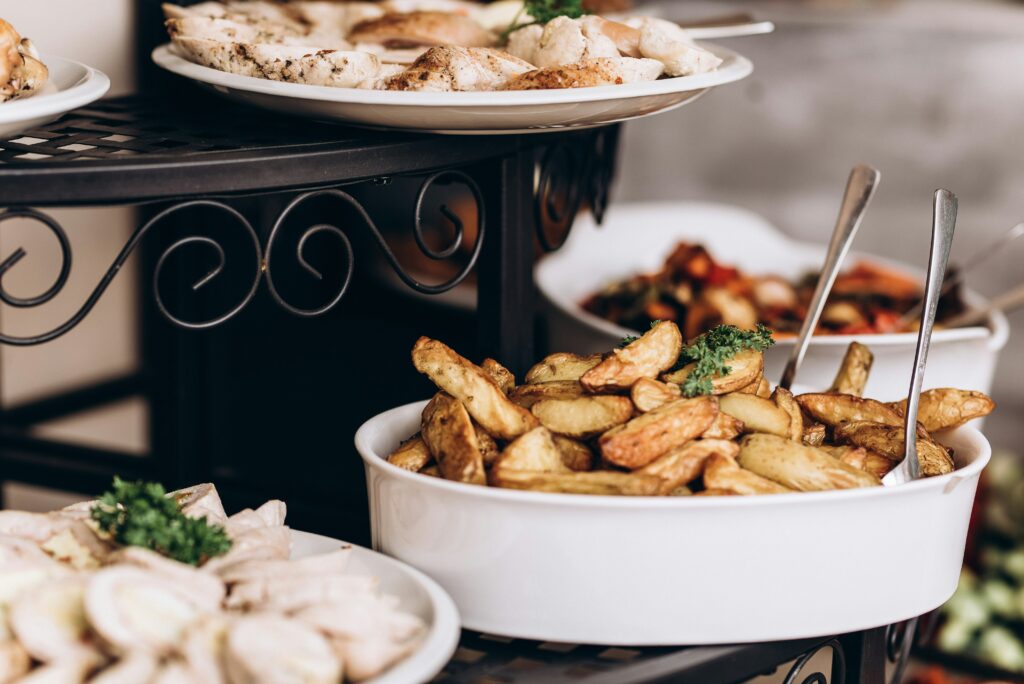
If you’re weighing the pros and cons of a plated dinner versus a buffet meal, opt for the plated dinner. With a buffet, couples tend to offer more options than necessary because they’re trying to appeal to everyone. A plated dinner is easy to scale down with a few choices for protein, vegetables, and a side. Since guests choose their meals ahead of time, you’ll have a pretty good idea of how much food you’ll need to provide. This helps you reduce waste by ordering enough food for everyone without extra trays at the buffet table.
Prioritize Seasonal Ingredients
For many couples, food is a source of love and connection. And, as the biggest party you’ll ever throw, it makes sense to want to offer your favorite foods at your wedding. But as you’re planning your reception menu, don’t just think about the dishes you’ll serve — think about the ingredients in each dish.
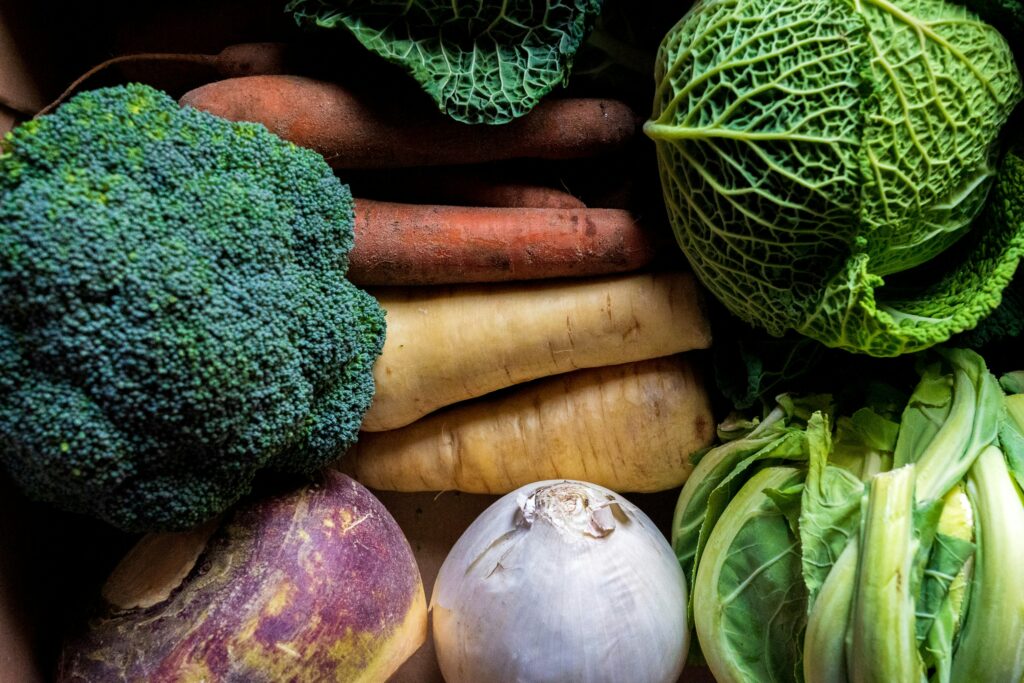
Seasonal produce is more sustainable than out-of-season fruits and vegetables because you can usually get it from a local supplier. This cuts down on shipping and packaging costs, helping you reduce your environmental footprint. Plus, since seasonal food travels a shorter distance, you’ll have fresher ingredients that haven’t gone to waste on the journey.
Limit Late-Night Snacks
While late-night reception snacks can be a fun surprise for your wedding guests, they can also create unnecessary waste. Some guests will leave the reception before the snacks arrive and others might not even be hungry after dinner. Choose your extras carefully and have a plan to distribute the leftovers. There’s nothing worse than spending hundreds of extra dollars on food no one wants to eat!
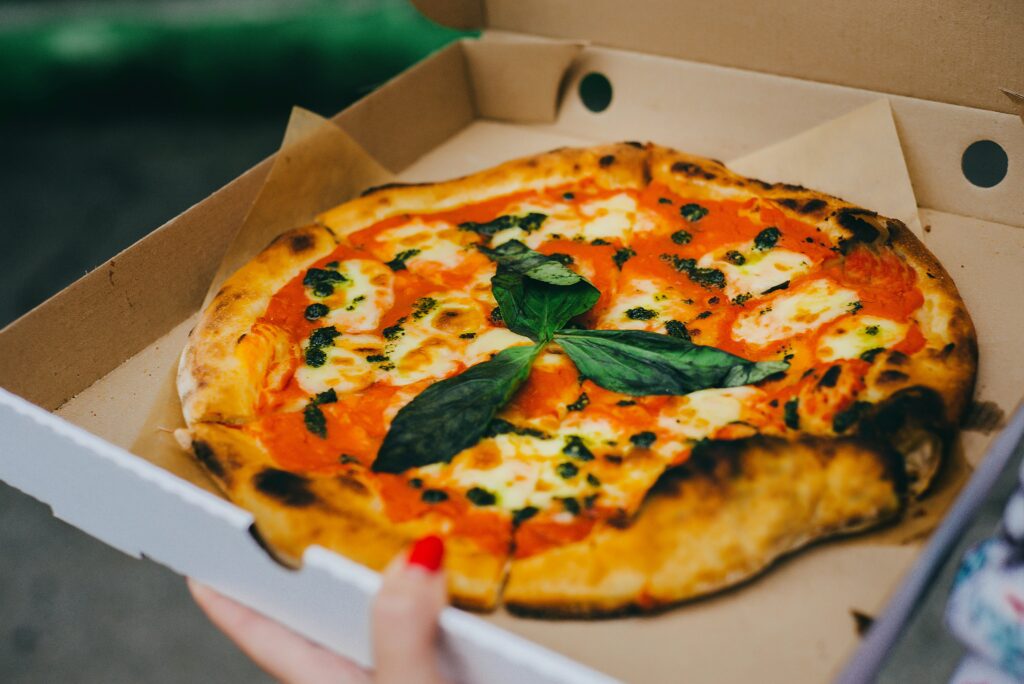
Share Dessert
Gone are the days of a simple wedding cake. Today’s weddings feature a smorgasbord of dessert options for guests to enjoy — from cake to cupcakes, cookies, ice cream, pie, and candy. While choices can be nice, they also add to unnecessary waste. Keep it simple and stick to a few options.
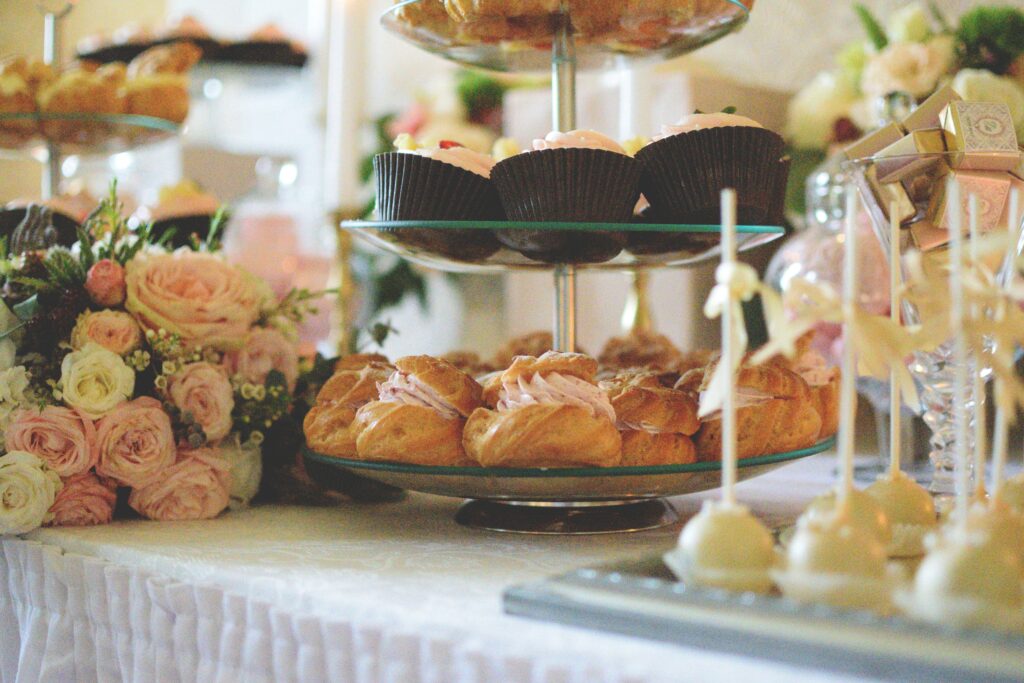
You can also reduce waste by encouraging guests to take the leftovers home with them. Think of it as a replacement for a favor (which also creates unnecessary waste!). Plan ahead and provide compostable takeaway boxes for guests to use.
Compost the Leftovers
Another way to limit food waste at your wedding is by composting. This is when you save food scraps to later recycle into soil. Some venues offer recycling and compost bins, but you can also hire a third-party service to pick up your compost after the reception. Organizations like Neighborhood Compost and Renuable offer pickup compost services specifically for weddings and large events.
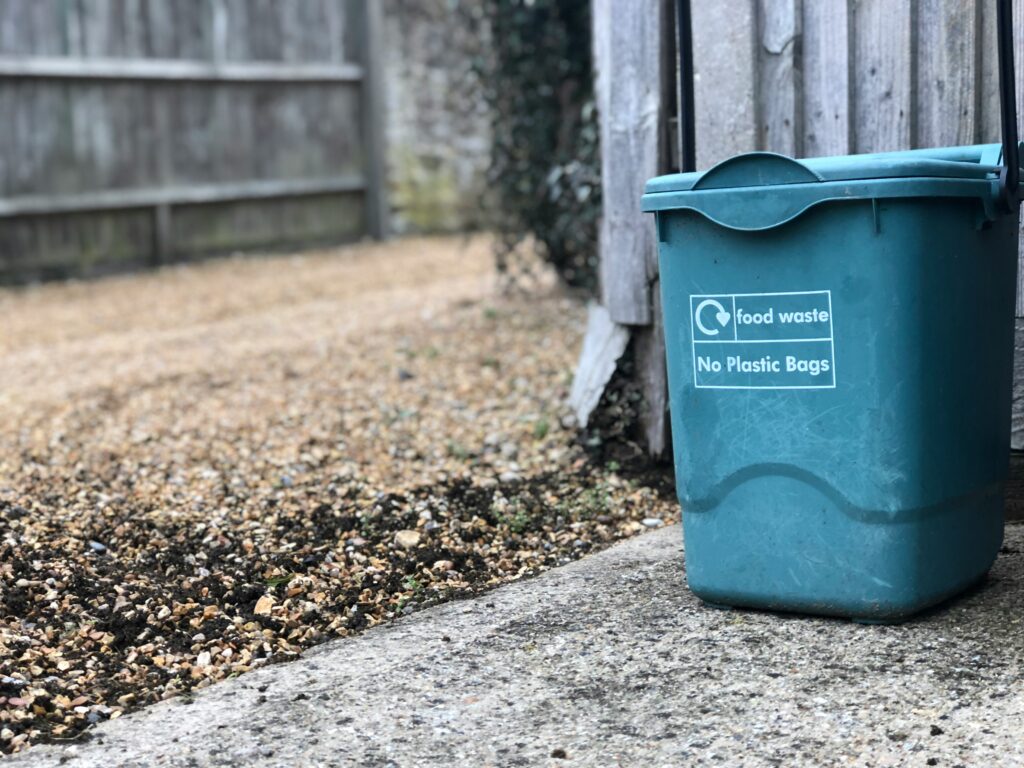
In addition to food scraps, you can also compost things like napkins, toothpicks, and paper plates. Just make sure to label each bin so guests know where to place their waste.
Tips for Reducing Food Waste at Weddings
As with any low-waste initiative, participation is critical to success. If sustainability at your wedding is a priority, let your guests know! Provide proper trash, recycling, and compost bins throughout your reception venue with clear instructions on what goes where.
Additionally, be practical: how much food do you really need? Don’t offer a bevy of options just to have the trendiest snacks. Think about your guests and provide a small selection of food that will cater to the majority of palates.
Rachel Kauffman is a Detroit-based content writer, bookworm, and cat mom to two feisty felines.

